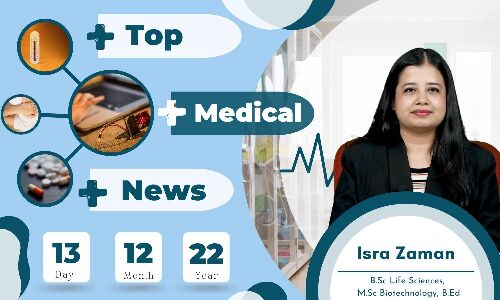
Among the cardiovascular diseases examined in a recent study, heart failure was linked to the highest excess deaths from extreme hot and cold temperatures. New research published in the American Heart Association’s flagship journal Circulation shows that extremely hot and cold temperatures both increased the risk of death among people with cardiovascular diseases, such as ischemic heart disease (heart problems caused by narrowed heart arteries), stroke, heart failure and arrhythmia.
“The decline in cardiovascular death rates since the 1960s is a huge public health success story as cardiologists identified and addressed individual risk factors such as tobacco, physical inactivity, Type 2 diabetes, high blood pressure and others. The current challenge now is the environment and what climate change might hold for us,” said Barrak Alahmad, M.D., M.P.H., Ph.D., research fellow at the Harvard T.H. Chan School of Public Health at Harvard University in Boston and a faculty member at the College of Public Health at Kuwait University in Kuwait City.
Reference:
Haitham Khraishah, Associations Between Extreme Temperatures and Cardiovascular Cause-Specific Mortality: Results From 27 Countries, Circulation, DOI
10.1161/CIRCULATIONAHA.122.061832
Using digital devices to soothe young children linked with emotional dysregulation in kids
Frequent use of devices like smartphones and tablets to calm upset children ages 3-5 was associated with increased emotional dysregulation in kids, particularly in boys, according to a Michigan Medicine study in JAMA Pediatrics.
It’s a scene many parents have experienced – just as they’re trying to cook dinner, take a phone call or run an errand, their child has a meltdown. And sometimes, handing a fussy preschooler a digital device seems to offer a quick fix. But this calming strategy could be linked to worse behavior challenges down the road, the findings suggest.
Reference:
“Longitudinal association between use of mobile devices for calming and emotional reactivity and executive functioning in children aged 3 to 5 years,” doi:10.1001/jamapediatrics.2022.4793.
Modakafusp alfa shows promise in treating multiple myeloma, study finds
According to the American Cancer Society, about 12,640 deaths from multiple myeloma are expected to occur in the U.S. in 2022. The cancer is uncommon, affecting less than 1 percent of the population. Myeloma is currently not curable, and despite advances in treatment, all patients see their cancers relapse after initial treatment and other early lines of therapy.
A first-of-its-kind drug known as modakafusp alfa has shown early potential in combating multiple myeloma, in a study presented by researchers from the University of Pennsylvania’s Abramson Cancer Center at the 2022 American Society of Hematology (ASH) Annual Meeting (Abstract 565).
Reference:
Dan Vogl, MEETING ASH Annual Meeting
AHA guidelines on management of acute coronary syndrome (ACS) in the older adult population
The new statement, “Management of acute coronary syndrome (ACS) in the older adult population,” highlights recent evidence to help clinicians better care for patients over age 75. According to the statement, 30-40% of people hospitalized with ACS are age 75 or older. ACS includes heart attack and unstable angina (heart-related chest pain).
The statement is an update of a 2007 American Heart Association statement on the treatment of heart attacks in the elderly.
Reference:
Abdulla A. Damluji et al, Management of Acute Coronary Syndrome in the Older Adult Population: A Scientific Statement From the American Heart Association, Circulation DOI 10.1161/CIR.0000000000001112
